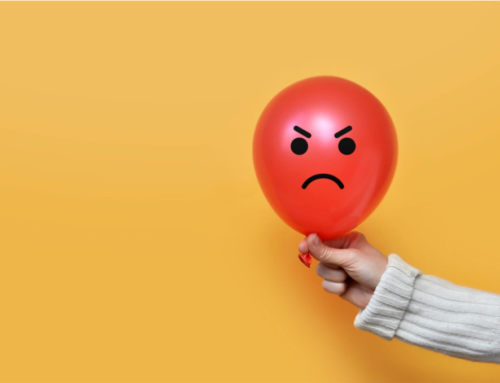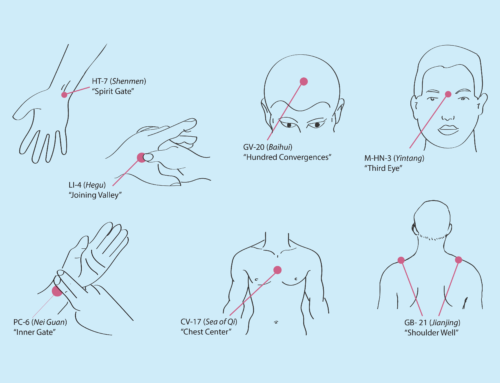In recent years, mental health has become a significant concern all over the world. In the United States alone, 20% of Americans or over 50 million people, experience mental illness. Of that group, less than half will seek treatment. While it is crucial that anyone experiencing severe mental health issues work with a professional mental healthcare provider, ie. talking with a therapist or exploring medication options, Traditional Chinese Medicine (TCM) can be a beneficial complementary therapy. While not recommended for acute distress or crisis management, TCM offers a way to get closer to our body’s natural homeostasis.
At the core of Traditional Chinese Medicine (TCM) lies the belief in holistic health, where the mind, body, and spirit are interconnected and must be in balance for overall well-being. Unlike Western medicine, TCM views mental health issues not as isolated conditions but as imbalances within the whole person. Further, TCM emphasizes the importance of addressing root causes rather than merely treating symptoms – by addressing other issues such as pain or digestion, more ease is created in the body.
Qi and Its Role in Mental Health
In TCM, Qi refers to the vital energy that flows through the body. The smooth and harmonious circulation of Qi is crucial for maintaining mental and emotional balance. There are a number of TCM treatments, such as acupuncture and herbal medicine, to help restore the free flow of Qi, alleviating emotional blockages and promoting mental well-being.
Acupuncture
Acupuncture has been shown to effectively treat various mental health conditions, including anxiety, depression, and insomnia. By stimulating specific points, acupuncture helps regulate neurotransmitters, reduce stress hormones, and promote relaxation. Often, mental health issues are associated with pain, which can be alleviated with acupuncture. When needing a bit of a boost at home, try massaging these acupoints.
Herbal Medicine
TCM utilizes a wide range of herbs and plant-based remedies to restore balance and harmony within the body. Herbal formulas tailored to an individual’s needs can address specific mental health concerns, so it’s best to talk to a provider before beginning any herbal treatment for mental health.
Mind-Body Practices: Qi Gong and Tai Chi
Qi Gong and Tai Chi are mind-body practices deeply ingrained in TCM. These gentle exercises combine movements, breath control, and meditation, promoting the circulation of Qi and enhancing mental well-being. Regular practice has been associated with reduced anxiety, improved mood, and increased resilience to stress.
Diet and Nutrition
According to TCM principles, diet plays a vital role in maintaining emotional balance. Certain foods are believed to have specific energetic properties that can influence mental states. For example, warm and nourishing foods can help calm the mind, while cooling foods can alleviate feelings of irritability.
Seasonal Wisdom
In TCM, following the wisdom of the seasons is believed to be crucial for maintaining optimal mental health. As each season is associated with specific energies and elements that influence our well-being, it is beneficial to become aware and respond accordingly to these seasonal shifts. Living more harmoniously with the rhythms of life allows us to find harmony within ourselves.
When it comes to a holistic approach to mental health, Traditional Chinese Medicine offers a perspective focused on the interconnectedness of the mind, body, and spirit. By addressing imbalances and promoting the smooth flow of Qi, TCM therapies such as acupuncture, herbal medicine, and mind-body practices can contribute to improved mental well-being. While TCM should not replace conventional medical treatment, it can serve as a complementary approach to support mental health and overall vitality. As we continue to explore alternative avenues for mental well-being, TCM’s ancient wisdom provides a valuable perspective for cultivating inner harmony and emotional resilience.
Photo by Ben Mack from Pexels





